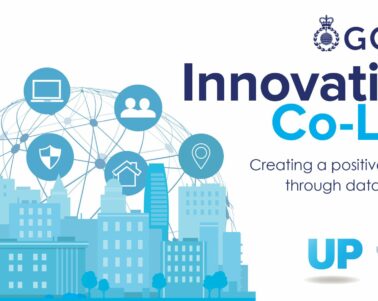
CITV’s Share a Story returns for 2017!
CITV’s BAFTA-winning competition, Share a Story, has returned to the channel and is looking for a new bunch of creative…


Work placements are like a sneak peek into the working world. They’re usually short-term experiences, lasting anywhere from a few weeks to several months, where a student or budding professional gets to embed themselves into your team, gain some real-world experience, and learn the ropes. Think of it as a hands-on tutorial – they’re there to observe, learn, and contribute, but they’re not locked into a long-term commitment.
Apprenticeships, on the other hand, are like an all-inclusive membership to the world of work. They’re typically longer-term commitments, often spanning one to four years, where an individual combines on-the-job training with formal learning, such as classroom instruction and assessments. At the end of an apprenticeship, the participant will have gained a qualification equivalent to anything from college to university level.
In a nutshell, work placements are most similar to a general internship, while apprenticeships are a commitment to skill development and collaboration, with qualifications to be obtained.
By taking on someone via these routes, you can infuse fresh talent into your organisation, contributing to a positive workforce culture whilst providing the individual with an insight into their chosen career path. The new face around the office can encourage colleagues to share their experience and reflect on their time at the company, which ultimately boosts employee satisfaction and community. Aside from this, companies often report a great deal of benefits, such as:
It’s not surprising that people aligning with new career paths can offer a unique perspective on internal operations; those who haven’t settled into a certain format can often be the most insightful for enriching the workplace. Existing staff have also often reported feeling invigorated by the presence of a student; it allows them to share their expertise in a rewarding manner and invoke a stronger sense of career importance and satisfaction.
With all the worthy benefits of providing a work placement scheme, it may seem like a challenge to curate one that is mutually beneficial for your business and for the new starter involved. Taking on an individual this way means equally committing to enhance their professional development, as it does, anticipating the benefits of the experience to your company. You may have career starters reaching out to certain departments of their choice, or you could choose to advertise an opening in select areas. Regardless, the programme curated must ensure the career starter has sufficient opportunity to learn about the basic operations of the team, as this will likely help them decide their future career path.
Salford Foundation, our partner for this campaign, is a charity that provides opportunities for young people and adults to get ready for the world of work. They offer various activities and programmes to upskill and educate young people, largely supported by local businesses. Salford Foundation have been connecting people and supporting businesses to facilitate these work-based opportunities and they could do the same for you. They can support with some of the administration and resources required to ensure a meaningful experience for all. Creating a schedule for an individual on a placement provides your team with the chance to clearly define what tasks you would like them to perform, set outputs and understand what resources are required from your business. There is an opportunity here to provide students with dedicated projects that align with wider business targets and aims. At the same time, it provides structure and outlines expectations for the individual. The schedule should encompass activities that provide an insight into business operations and utilise a variety of skills that are required in the role/industry they are exploring.
Ultimately, having an extra pair of hands onboard (often for a reduced price or even no cost at all) is beneficial to any business. Where you may not usually have the resources to spare, these placement students can fill roles with enthusiasm and a desire to learn. There is a time input required from the host business to ensure a mutually effective experience, but the benefits often outweigh the resources needed to facilitate it. Down the line, you may even choose to offer these students future roles pending graduation, where they can rejoin the workforce with all the knowledge gained during placement, reducing training costs and ensuring they are a fully functioning worker much faster.
So, if we’ve convinced you that offering a work placement or apprenticeship is a good idea click through to our next page to find a wide variety of tips and resources to support you on this journey.
You can also sign up to Salford Foundation’s quarterly newsletter to keep in ‘the loop’ on the latest opportunities and projects that your business can get involved in!

CITV’s BAFTA-winning competition, Share a Story, has returned to the channel and is looking for a new bunch of creative…

dock10, the leading media services business at MediaCityUK, has opened an additional brand new post-production hub,’ The Quay’ – which offers a boutique feel featuring high-end technology in a creative but relaxed environment.

GCHQ have launched a support programme in MediaCityUK for UK companies using data to help improve the safety of people…
